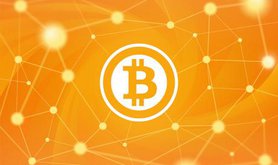
Tree of knowledge of good and evil.Wikicommons/ Biblical Paintings - Dr. Lidia Kozenitzky. Some rights reserved.In its seven years of existence, Bitcoin has gained widespread attention with its disruptive potential in finance. Some see it as a form of digital gold, offering a safe haven against capital controls and asylum to people whose currency is debased.
The invention of cryptocurrency coincided with a global crisis of legitimacy in the 2008 financial meltdown, which was followed by bank bailouts and for the people, a cycle of austerity. In that seminal white paper, mysterious creator Satoshi Nakamoto described Bitcoin as a purely peer-to-peer version of electronic cash that would allow "online payments to be sent directly from one party to another without going through a financial institution". The core invention is distributed trust and Nakamoto stated that it was put forward as a solution to the "inherent weakness of the trust based model", where financial institutions act as trusted third parties.
Bitcoin, I will argue, is not just an innovation in banking and finance, but at its core, concerns a challenge to governance systems that can lead to an evolution of humanity. For so long, social progress has stagnated, with the selfish and callous sides of man taking the upper hand. Unprecedented levels of government and corporate corruption in recent years have signaled a breakdown of systems of accountability. This deep failure of democracy has exposed the existence of individuals who exhibit a total lack of conscience and empathy for others. They embody a dark side of individuality, with aggressive and narrow selfish desires that often come in conflict with the public good. Now, the destructive actions of this minority seem to have become a threat to civilization itself. We shall explore how Bitcoin provides a new model of governance that is resilient to these adversarial forces.
Security holes within representative democracy
In the US, the launch of constitutional democracy brought a significant departure from the monarchy of olden times, where the king acted as ordained ruler. Yet, the foundation of this governance has not fundamentally changed, as it still relies on authority, requiring people to trust those who claim to represent them in the form of elected officials.
Representative democracy has increasingly become a mask used by ruthless individuals to hide and gain a grip on the populace. Behind the veil of secrecy, corporate masters behind the charade of electoral politics sponsor political candidates, who with campaign promises keep people passive and manage down their expectation levels. With future faking, which involves making plans that will never happen, and gas-lighting, a tactic known to challenge one’s memory, they deceive and gain power over others.
Money as a weapon of control
Money dependent on systems of representation requires trust to work. With the creation of the Federal Reserve and other central banks, private corporations began taking over the supplying of money. This centrally planned money production intermediates human relationship by dividing all into classes of creditors and debtors, where the former are masters, while the latter often become de-facto slaves.
The hidden captains of this managed democracy direct the flow of currency through financial engineering and have created incentive structures that are bent toward preserving their power. Stimulated by toxic asset bubbles, derivatives and quantitative easing, these incentives work like invisible hands of the market. They suppress democratic values by controlling information, which is the currency of democracy and suppressing free speech with economic censorship, as was seen in the case of the financial blockade against WikiLeaks. With radical deregulation, this system promotes fraud and depravity, exemplified in HSBC’s money laundering and top bank’s currency rigging. Through oppressive monetary policy and predatory lending that is presented as humanitarian aid, institutions such as the IMF and World Bank indebt developing countries, holding whole populations in poverty.
All of this has resulted in the creation of a two-tiered justice system and derisked capitalism, where those in power are never allowed to fail and are not held accountable either by markets or the legal system.
The 2008 financial crisis and the bailouts of Wall Street banks exposed this big monopoly game and the brazen double standard in these unfair rigged rules. At the onset of the Occupy movement, scholar-activist David Graeber spoke of how people had woken up to the fact that "money is a political arrangement" and is "a social set of promises that people make to one another". He noted how this crisis revealed that governments treat ordinary people’s debts as sacrosanct with no one allowed to default, while bankrupt bankers are bailed out by those taxpayers, who are then just loaded with more debt.
This environment can also take advantage of honest entrepreneurs. The CEO of a Taipai-based shipping company, Nobu Su became a victim of this unregulated greed and perversion of free market capitalism. He filed a lawsuit against the Royal Bank of Scotland for losses on swaps. When asked by Max Keiser, host of the popular financial program on RT about a possible solution to this problem, he emphasized the need to timestamp documents so that people can’t change figures, in order to hold these fraudulent activities accountable.
Bitcoin as a new security model
Bitcoin brings an elegant solution to this systemic parasitic rent-seeking and exploitation. As asset-based digital cash, it offers an alternative to the promissory system of value creation by decree from above. Currency is its first application and Bitcoin's underlying technology, the blockchain is a public asset ledger. This is a distributed database that records a history of transactions in the network without anyone in charge. Once data is verified, no one can undo it. This immutable timestamp goes beyond simple accounting of monetary transactions.
Bitcoin enables a new security model and it addresses the problem of security holes in the existing trust-based model of governance. Author and security expert Andreas Antonopoulos called this "trust by computation" that has "no central authority or trusted third party". He explained this form of trust as follows:
Trust does not depend on excluding bad actors, as they cannot ‘fake’ trust. They cannot pretend to be the trusted party, as there is none. They cannot steal the central keys as there are none. They cannot pull the levers of control at the core of the system, as there is no core and no levers of control.
With this trust by computation, the need to trust institutions or central authorities is replaced with mathematics. Human trust is easily exploited by those prone to act with little concern for others. In the Bitcoin network where there is no point of control, attackers cannot fake trust. In order to gain control over the network, they would have to compromise math.
Power corrupts, and the best way to check and balance power is to not have these points of control in the first place. Thus, decentralization is a natural progression of security models. In a decentralized system, there is no ladder of power that can be climbed to exploit others. Through distributing trust across a network and minimizing the necessity to trust a third party, the system removes the vulnerability that often leads to such concentration of power.
Rule of algorithmic consensus
So, how does Bitcoin distribute trust and secure this peer-to-peer network? Instead of top down rules, Bitcoin is governed by a consensus mechanism called proof-of work. Bitcoin’s particular consensus algorithm reverse-engineers the current financialization scheme. Through using bitcoin as a token of value with a combination of cryptographic hash functions, game theory and economic incentives, a whole new economy is now being created. Bitcoin mining is the heart of the system. It is a broadcast math competition engaged by a network of computers around the world with clear rules, including the total number of bitcoin created, a predictable issuance rate and automatic adjustment of mining difficulty.
By using precious resources, miners work to solve difficult mathematics problems. Each 10 minutes, problems are solved and whoever solves the problem first wins a fixed number of bitcoins. This process leads to both creation of money and clearing of transactions and it is designed to create economies of scale, with rewards proactively incentivizing all to follow the network rules of consensus.
What makes the global Bitcoin heart beat and its ecosystem thrive is not just miners and developers, but everyone’s participation in the network. This includes merchants, investors, entrepreneurs and users. Journalist Aaron van Wirdum describes how full nodes that relay and validate transactions within the network check and enforce Bitcoin’s consensus rules. He explains how "not all full nodes are equal from a network perspective". The full nodes that miners, companies and developers run "all add weight to a set of consensus rules". Yet, he emphasizes how all users play a crucial role in governance, as they are what ultimately gives Bitcoin value.
By removing third parties, the inventor of this technology found a way to create a direct feedback loop among all participants, aligning the balance of supply and demand with the force of consensus, which is more democratic than the current oligarchic system that operates under a pretense of democracy.
In the current financially engineered market, monetary supply does not correlate with the real demands of people. Yet, with this new Bitcoin market, monetary supply is created through real demand with the feature of infinite divisibility (bitcoin can be divided into 8 decimal points and more if consensus is reached).
The only way miners and developers get paid for their work is to be on the side of consensus, so they are incentivized to respond to the demands of users. Instead of pumping money like a central bank printing press, this globally stretched heart is a receptive organ. It listens to the impulse to transact freely that comes from everywhere and the network self-regulates to develop its own immunity against both internal and external attacks.
Honest account of the darkness within
In these new cryptographic systems, attempts to cheat the system could manifest in covert chip fabrication, spam attacks and miners colluding in a mining pool to earn more than their fair share at the expense of honest miners.
Yet, the genius of this protocol is in the ability for a math-based network to enforce rules of consensus and fair play. At its foundation is Satoshi. The Chinese character of his name in Japanese is translated as history of philosophy. This philosophy is like wisdom gained through history; an understanding of the contradiction inherent in man as a being both corruptible as well as perfectible. This is at the crux of Bitcoin’s game theory. Instead of naively assuming good intentions in everyone, the creator of this technology expected that some would try to cheat and attack the network. This expectation is shared by developers who are committed to Satoshi’s vision of this particular security model. At the Hong Kong Scaling Bitcoin conference, developer Andrew Poelstra explained the mindset that Bitcoin lives in an adversarial environment and that the possibility of individuals acting selfishly and taking advantage of others’ good will needs to be factored into designing its governance.
Bitcoin core developer Peter Todd also emphasized the necessity of adversarial thinking. In a Twitter interaction on the topic of security, Todd noted, "security isn’t about people promising they won't do something, it's about people being unable to do something".
When greed and self-interests are condemned or denied, these aspects do not disappear, but are simply pushed out of sight and kept hidden. Efforts through law enforcement to regulate and punish selfish actors can just make them more cunning and deceitful. Bitcoin’s security model is based on honest accounting of selfishness in our genes. Instead of trying to shun the darkness, it finds a way to bring what is often hidden in society out in the open and work with it.
Incentive structure
With this ability to think like an attacker, market forces are used to create a new law that can bring accountability without relying on the moral strength of any individual or external moral authority. Robert Wolinsky, senior manager of blockchain research, explains how "Satoshi introduces a cost equation to cheating/collusion via the proof-of-work protocol", making it clear to parties what the cost of attacking the network is and having them pay for it upfront. Furthermore, by making the rewards for playing by the rules higher than the value of attacking the network, it can proactively protect the system from the lack of impulse control of those who are instinctively programmed to act ruthlessly.
Bitcoin mining reintroduces risk into the market. Here, concrete rewards are used to channel risk-taking and self-serving inclinations, making all compete for honesty and truth. The competitive drive of survival of the fittest, fueled by this global math contest does not create ruthless bloodbaths or make a killing on the back of someone’s misery, but instead is guided to serve the whole network. The fire of hashing power burns aggressive and violent parts of our humanity, transforming them into generating global level security for all.
Governance without central authority
Over the decades, democratic governments have become vehicles of control that have lost their fail-safe. Increasingly, people are held hostage by this corrupted political system. Satoshi’s white paper published in 2008 cleared a path for evolution. This wisdom can help humanity solve the problem of a historic failure of accountability.
Bitcoin ungoverns people as well as unbanking them around the world. Proof-of-work distributes what used to be third party trust across a massive global decentralized network, fostering a kind of self-governance in each individual. People who till now have been blindly handing over their consent to institutions can instead choose to be equal under the law of mathematics.
Governance without central authority can at first seem inefficient. But it is more secure than the current system of representation. The more the system reduces the need to trust a third party, replacing it with a borderless network, the lower the security risk becomes. With Bitcoin, governance can be innovated to function as a platform of consensus. Rather than a system to govern others, it can be used as settlement; to work out disputes and reconcile conflicts. Distributed trust as its core technology enables the capacity to set up rules agreed to by everyone, which cannot be altered by one person or group. The Bitcoin blockchain opens a door into a pluralistic society where all can participate in creating governance models and currencies that manifest their values through the principle of mutual aid and voluntary association.
As Bitcoin gains more value, proof-of-work becomes a lightening rod, attracting malicious attackers. Now, a new civilization is emerging, one that does not try to enlighten others, but emanates light from out of our own darkness within. Man is fallible and each person alone can’t account for themselves. But through our genuine efforts of working together, a spark can be created that shines on a path toward freedom. Each 10 minutes, the heart of the Bitcoin network expands, time-stamping out greed and antisocial impulses, while confirming our altruistic nature. Through a network of consensus built upon this virtue of selflessness, humanity that once was known as killer apes can now become a species capable of love.
Read more
Get our weekly email





Comments
We encourage anyone to comment, please consult the oD commenting guidelines if you have any questions.